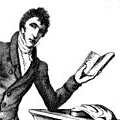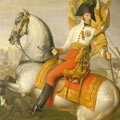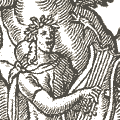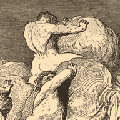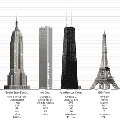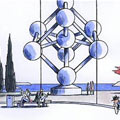schilderijen en animaties van Scott Draves
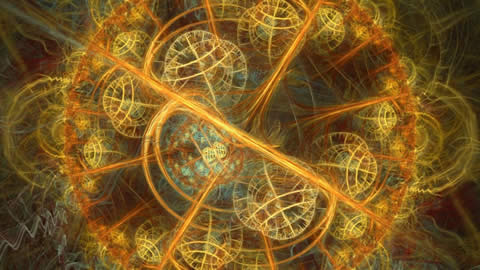
een animatie van Scott Draves
The animation is made from a series of 100 lithographs entitiled “Kunstformen der Natur“, German for “Artforms of Nature”, created by Ernst Haeckel in 1899-1904.
Haeckel was a late 19th century German physician, scientist, and artist. He coined the word “ecology” and reformulated the theory of recapitulation in terms of evolution, which was the big new idea of the day. “Ontogeny recapitulates phylogeny” is his phrase and he is most famous for faking data to support it. Haeckel was a legendary raconteur and socialite, known in his time for popularizing Darwin’s theory on the continent and clever sloganeering. But he was unable to isolate his artistic nature from his scientific practice. Sometimes he let theory take precedence over reality, hence the faking, which he brazenly and unapologetically admitted to after getting caught. Furthermore, not only was he into species but races, and like many of his contemporaries he used “survival of the fittest” to justify his racism. His writings were later adopted by the social darwinists and the nazis.
Haeckel was a late 19th century German physician, scientist, and artist. He coined the word “ecology” and reformulated the theory of recapitulation in terms of evolution, which was the big new idea of the day. “Ontogeny recapitulates phylogeny” is his phrase and he is most famous for faking data to support it. Haeckel was a legendary raconteur and socialite, known in his time for popularizing Darwin’s theory on the continent and clever sloganeering. But he was unable to isolate his artistic nature from his scientific practice. Sometimes he let theory take precedence over reality, hence the faking, which he brazenly and unapologetically admitted to after getting caught. Furthermore, not only was he into species but races, and like many of his contemporaries he used “survival of the fittest” to justify his racism. His writings were later adopted by the social darwinists and the nazis.

The theory of recapitulation is a fractal theory of evolution. It states that the story of the lifetime of the individual is a retelling of the story of the lifetime of the species. It’s fractal because it posits self-similarity between scales, ie, the whole consists of many smaller versions of itself. In particular, it compares the development of the individual in the womb—from single cell as a fertilized egg to a multi-cellular blob (blastula) through a fish-like stage with gills to a mammalian embryo and eventually a person—to the evolution of our species which also started with a single cell. The theory as put forth by Haeckel, however, has been thoroughly discredited. Not only because of the faking incident, which involved distorting drawings of dog and human embryos, and the association of his racism, but scientifically as well. In fact Stephen J. Gould wrote a whole book about it, “Ontogeny and Phylogeny”. Despite all that I believe there is a grain of truth to the theory: it tells us something about the origin of multicellular organisms and sexual reproduction. We have to return to our origin in order to reproduce. Further there is a tendency but not a rule I believe for evolution to build upon working systems rather than modify them. This is clearly visible in technology where once something is adopted we get locked in. Evolution has momentum.
Bron: draves.org/dub/kunstformen.html
Bron: draves.org/dub/kunstformen.html

